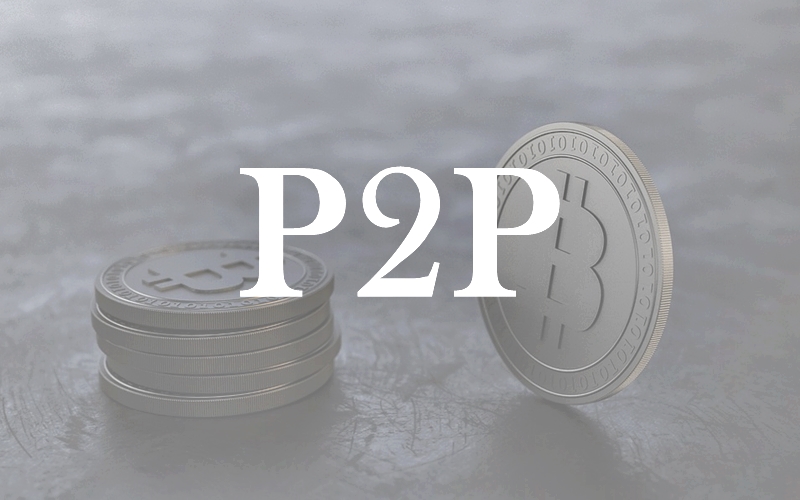What are Peer-to-Peer Cryptocurrency Exchanges?
Bitcoin was initially developed to support peer-to-peer transactions. Unlike other peer-to-peer technologies such as torrent applications, or other forms of content sharing, in the crypto sector peer-to-peer means a one-on-one trade/ interaction.
A peer-to-peer transaction involves the two trading parties having data related to each other at all times, rather than interacting with several different peers, as it is with torrents.
Instead of using an order book to pair buy and sell orders — and therefore controlling all the funds being used on the exchange platform— peer-to-peer exchanges allow the participants of the market to trade directly with each other without any trusted third party processing their trades or holding their funds.
‘Regular’ cryptocurrency exchanges are companies, which act as mediators between their clients and generate profit by charging fees for their services. On the other hand, the trades which take place on peer-to-peer exchanges are executed entirely by pre-programmed software, without requiring human management or supervision.
How Does A “Regular Exchange Work?”
In short, a regular exchange establishes a price for buying their own stock of coins. Then, users deposit fiat money or other cryptocurrencies and exchange it for their desired coin and amount at their current rate. The requests made are known as orders which are stored in an order book.
Often, the purchaser is required to provide legal documentation to prove his or her real identity before the transaction will execute.
How Do P2P Exchanges Work?
P2P work differently. Instead of matching trades in the order book, they directly match the people that make those orders. When a matching buy and sell orders are found, the exchange’s software does not immediately execute the trade, but instead, it connects the buyer with the seller, enabling them to set their own terms (price, amount, exchange rate) without any third parties.
Still, third parties may serve as conciliators if there are possible disputes, but no human participation from the exchange is required by default. Just like with Bitcoin, the software is perfectly capable of matching traders on its own in a decentralized manner.
Advantages
All advantages of decentralized cryptocurrency exchanges stem from lacking a centralized company or entity which manages things. A single point of authority poses some advantages, which are mainly faster trades.
Immunity to Government Regulations
Regular cryptocurrency exchanges are subjected and may be exploited by governments through regulatory restrictions. In contrast, P2P exchanges can avoid having to comply with government laws, because they don’t have any central point of authority which could be forced.
Even if some parts can be coerced to shut down operations, the rest of the system stays unaffected.
Lower fees
As regular exchanges are operated by people, they have to be paid for their work. P2P exchanges function using software, so there are very few employees, and, therefore very small fees, as they do not require a larger profit from which they pay their workers.
Privacy
In recent times, more and more governments have started successfully implementing AML and KYC regulations on cryptocurrency exchanges. These types of regulations force the companies behind those exchanges to gather as much information on their users as possible, such as their real name, places of residence, ID numbers and more.
As the government cannot impose those regulations on P2P exchanges, this means that users can trade much more privately.
Security
P2P exchanges do not hold the funds for their users – instead, they connect traders, which then make their deals directly. Not entrusting your coins to a third party makes the trading process much safer as the funds cannot be stolen or lost.
Disadvantages
Lower Trading Volumes
Most P2P exchanges target a small, specific client base of crypto enthusiasts, catering less to newbies, making the platform less intuitive. Also, because of their small number of clients, this leads to much lower trading volumes compared to their centralized peers.
Longer trade times
Due to the manner in which the trades are processed and traders have to wait for the actual crypto and fiat transactions to finalize before a trade is settled, this results in longer trading periods.
Low demand
The aforementioned issues of P2P exchanges make them have a lower demand rate, as professional traders, who need fast transactions times might look for other options.
Conclusion
Even though peer-to-peer cryptocurrency exchanges have some advantages over their centralized counterparts, they can only be of use to traders that are looking for something specifying when conducting their transactions, such as privacy, lower fees or freedom of payments.
